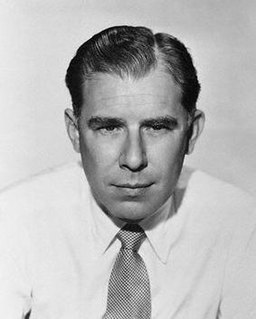A Quote by Gilbert K. Chesterton
It's the first effect of not believing in God that you lose your common sense.
Related Quotes
The ghostly presence of virtual particles defies rational common sense and is nonintuitive for those unacquainted with physics. Religious belief in God, and Christian belief that God became Man around two thousand years ago, may seem strange to common-sense thinking. But when the most elementary physical things behave in this way, we should be prepared to accept that the deepest aspects of our existence go beyond our common-sense intuitions.
For, what is order without common sense, but Bedlam's front parlor? What is imagination without common sense, but the aspiration to out-dandy Beau Brummell with nothing but a bit of faded muslin and a limp cravat? What is Creation without common sense, but a scandalous thing without form or function, like a matron with half a dozen unattached daughters? And God looked upon the Creation in all its delightful multiplicity, and saw that, all in all, it was quite Amiable.
I don't know if God would agree with me, but believing in God is kind of unimportant when compared to believing in yourself. Because if you go with the idea that God gave you a mind and an ability to judge things, then he would want you to believe in yourself and not worry about believing in him. By believing in yourself you will come to the conclusion that will point to something.
Cooking creates a sense of well-being for yourself and the people you love and brings beauty and meaning to everyday life. And all it requires is common sense – the common sense to eat seasonally, to know where your food comes from, to support and buy from local farmers and producers who are good stewards of our natural resources.
Men lose their birthrights for a mess of pottage only if they stop using the gifts given them by God for their betterment. By prayer. That is the first and greatest gift. Use the gift of prayer. Ask for strength of mind, and a clear vision. Then sense. Use your sense. … Think long and well. By prayer and good thought you will conquer all enemies.
You go from being with the guys all the time in the locker room, in practice, having a militarized brain in terms of this schedule, and then, all of a sudden, you are on your own. You lose a sense of purpose; you lose a sense of yourself. And you lose confidence. You find yourself saying, 'I was the best at this, and now I'm not the best.'





































